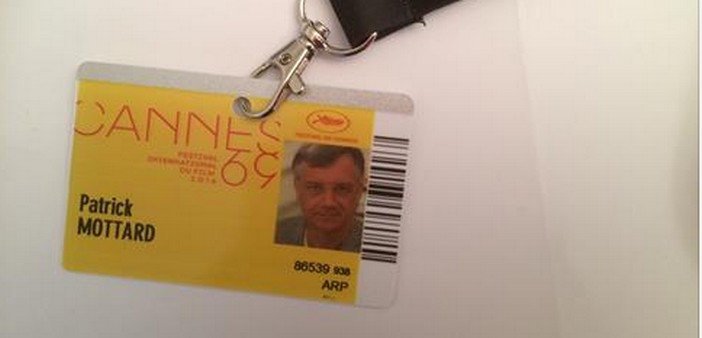A Cannes day as we love them: dense and eclectic. With a slightly offbeat French film, a spectacular American production, and a work from a peripheral cinematography in the spirit of “Directors’ Fortnight”.
Staying Vertical, Alain Guiraudie, France
Léo (Damien Bonnard) meets Marie (India Hair), a shepherdess, on a large plateau in Lozère. They have a child, but when Marie falls prey to the baby blues, she leaves, and Léo finds himself with a baby on his hands.
We are left perplexed by this pseudo road movie (actually a never-ending back and forth between Lozère and… Brest!), sometimes fascinating (the final scene with the wolves), often unsettling (the not-so-politically-correct assisted suicide), yet always artificial. Certainly, it is a tale, but the characters are too impeccably implausible to gain adherence or simply provoke emotion. As for the metaphor of the wolves, which is somewhat the framework of the script (should we eliminate them or learn to live with them?), it is a bit too demonstrative.
However, as the scenes unfold, the film exudes a peculiar tune that intrigues the viewer, keeps them in suspense, and ensures that Guiraudie’s work is far from pointless.
Money Monster, Jodie Foster, USA (Out of Competition)
Lee Gates (George Clooney), a TV financial show host-guru, and Patty (Julia Roberts), his producer, are taken hostage live on air by a viewer infuriated by losing everything after following Lee’s advice.
We settle into Jodie Foster’s film without much expectation, predicting it to be probably an Out of Competition film that Hollywood regularly imposes on Cannes as part of a quid pro quo. The surprise is thus all the better. Money Monster is a film filled with nail-biting suspense, peppered with surprises such as genuinely comical sequences (the hostage-taker’s wife berating him live in front of bewildered witnesses). Jodie Foster also takes us back to the ways and customs of Wall Street in “The Economic Horror” denounced by Viviane Forestier at the time.
And the ending, which isn’t particularly a happy one, expresses a surprising yet courageous fatalism from a filmmaker not necessarily engaged.
Sierranevada, Cristi Puiu, Romania
“All happy families are alike, but every unhappy family is unhappy in its own way.” Cristi Puiu’s Romanian family heeds Anna Karenina’s lesson by being unhappy in its unique way.
To commemorate the death of the family patriarch, three generations gather in the small apartment of the deceased’s widow to perform some gastronomical-religious rites apparently linked to Orthodoxy. The claustrophobic setting becomes devastating, revealing conflicts, contradictions, grievances, little secrets (we are not quite in “Festen” though). From the communist grandmother to the conspiracy theorist nephew, through the military man, the orthodox priest, the drug-addicted granddaughter, and several women on the verge of a nervous breakdown, we have an explosive family cocktail which might well be a snapshot of Romanian society in 2016.
Family, I hate you! Family, I love you! The director leaves the audience to judge, as the rather disillusioned protagonists seem to consider that family (post-communist society) is not an option but a fate.
The minimalist cinematic exercise – a sort of long sequence shot – is brilliant (it’s also, to my knowledge, the first feature-length film to mention the Charlie Hebdo attack), but it is quite lengthy (2 hours 53 minutes). Cutting an hour off might have given it more strength.
By Patrick Mottard


